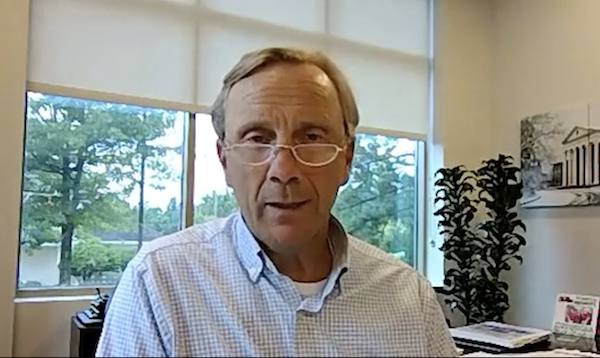ESG isn’t new, but for years it seemed more like a laudable goal than a business imperative. That’s obviously changing, and the mounting pressure to demonstrate ESG bona fides is pushing leaders to broaden their definition of success.
Brent Wood, the CFO of EastGroup Properties, ran into this pressure a couple of years back. In the video below, he and Sally Curley, an expert in investor relations and ESG, speak with Vanguard’s Ken Banta about how leaders can make ESG work in their organizations.
EastGroup, an equity REIT, was running smoothly and doing well, Brent explains, when suddenly “we had a surprising number of votes against our Nominating/Corporate Governance Committee.” That surprise prompted the company, working with Sally, to set up meetings with four of the big-block “no” voters.
It turned out that many EastGroup stakeholders were concerned about more than the company’s financial health. For one thing, the average age of board members was “well into the 70s,” Brent says; for another, the board “wasn't very diverse.” Management “heard loud and clear that that was not acceptable, and that that was [a] separate [issue] from the fact that you had performed well.”
EastGroup was soon publishing a corporate sustainability report, and then, this year, hiring a director of sustainability, whose job it is to keep up with shifting expectations around ESG, and to figure out better ways of capturing ESG-related data. “It’s going to be a long journey,” Brent says, “but coming out of the gate has been a bit of a sprint.”
Sally, who worked for years as a corporate executive specializing in investor relations, offers important tips for organizations looking to start or ramp up ESG programs. First of all, “create some governance around the process.”
One of the things that I always recommend to clients is to make sure you either have an ESG working group or an ESG committee — with the former being a little more informal, depending on the size and culture of your organization, and the latter being a little bit more formal, with a charter. And make it a cross-functional group, so that everybody has ownership of the initiatives and everybody understands what it is — it will get more traction in the organization. And make sure that you do have board oversight — at the end of the day, that's what investors are asking for.
— Sally Curley, CEO
Curley Global IR
“Don’t strive for perfection,” Sally says; “it’s about progress.” But when it comes to reporting on that progress, “do your homework.”
Much of this is about disclosure, [so] make sure that before you disclose anything you have the hard data behind it, you've peeled back the layers to understand the data, and you have some sort of a benchmark against which you can measure yourself. Because at the end of the day, employees, shareholders, regulators — the various stakeholders — are really going to look for [measurable] progress.
— Sally Curley
Brent says that he knows of people who “bury their head in the pillow” and hope the demands of ESG reporting go away. “It’s going to evolve — it truly is a journey — but in no way, shape, or form do I think [it’s] going to go away.”
Check out the video for more of Sally and Brent’s insights.


Comments